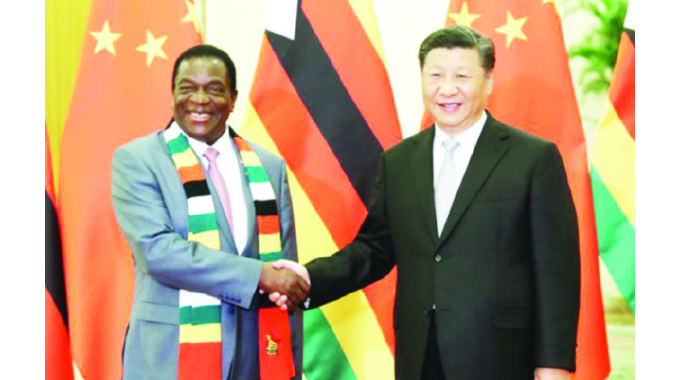Days of insurgency in Moza numbered

Ruth Butaumocho
African Agenda
Insurgency is a growing global threat to peace that affects human and state security as a result of its nature of catastrophe.
The use of violence to an end by rogues behind insurgency affects global humanitarianism and economic activities, particularly in developing nations.
Acts of insurgency are very brutal, human lives are lost, millions are displaced and lives are disrupted, not to mention the trauma that affected communities will have to live with it for the rest of their lives.
The insurgency in Mozambique is a sad and very unfortunate development that has unsettled millions in this gas-rich country, while painting a gloomy picture in the region of how to respond to the disturbing and worrying problem in that country.
Running into its fourth year, the insurgency in Mozambique’s northern province of Cabo Degaldo has left 2 800 people dead, according to conflict data tracker ACLED, and displaced 800 000.
Political analysts say the insurgency represents a regional threat that could spill across borders and create instability in a region, which has had little incidences of instability over the years, despite attempts by foreign players to destabilise it in several ways.
Insurgents believed to be affiliated to the Islamic State Group have been on a rampage amid growing concerns that the attacks could worsen if no containment measures are put in place.
During attacks in Cabo Delgado, dozens have since lost their lives in the brutal attacks, forcing thousands to flee into the bush, with others seeking refuge in neighbouring provinces.
In one of its worst and brutal attacks, the insurgents in March launched a raid to overrun the town of Palma, ransacking buildings and beheading citizens, with one Zimbabwean being killed in the violent siege.
Several other attacks have since taken place in Cabo Delgado, further destabilising the northern province of Mozambique, forcing citizens to flee their homes, fearing for their lives.
With such alarming attacks that have already destabilised the northern parts of Mozambique, Mozambican President Filipe Nyusi, had to call out to Southern African Development Community (SADC), for assistance to fight the insurgency.
SADC countries are bound by the Mutual Defence Pact of 2003, which identifies a threat against one-member state as a threat against the region.
Article Six of the Mutual Defence Pact states that “an armed attack against a State Party shall be considered a threat to regional peace and security and such an attack shall be met with immediate collective action”.
The region, therefore, welcomes the decision by SADC to deploy a military force to help Mozambique defence forces, the Forças Armadas de Defesa de Moçambique (FADM), defeat Islamic insurgents in the northern Cabo Delgado province after the Extra Ordinary Summit Council of Ministers agreed to finance the operation early this week.
If anything, the decision is a culmination of a series of meetings that regional Heads of States have been holding to try and deal with the threat.
Inspired by the mantra “An injury to one is an injury to all,” the ministers decision emanated from the Heads of State directive for an immediate agreement to execute a regional response to the insurgents whose activities are now viewed as a threat to regional peace and stability.
Such a decision could not have come at a better time for a region that is seized with expanding several regional projects aimed at improving SADC’s economic trajectory, as it seeks leverage with other blocs in the continent and globally.
Currently, the SADC region has been on a positive trajectory, pursuing economic development for its people, and the last thing that it would want on its doorstep in regional instability of any sort.
The region is already battling with a myriad of economic problems that have been exacerbated by the Covid-19, so any conflict that may arise in the region would be a setback to regional development, and has the capacity to impact beyond the region.
Already, the geographical location of Mozambique, makes its position very worrisome and any conflict can have serious ramification in the region as a whole.
Mozambique borders Tanzania, Malawi, Zambia, Zimbabwe, South Africa, and Eswatini. Its long Indian Ocean coastline of 2 500 kilometres faces east to Madagascar.
As a result, Mozambique conflict, particularly its possible intractability, poses numerous risks for neighbouring countries and the region, and consequences of unstable conflict spill overs may present more challenges than before, hence the need for regional intervention.
Experience gleaned from other conflict ridden zones, have shown that regional collaboration, cooperation and concerted efforts are critical for resolving complex conflicts, such as insurgencies, which can easily permeate borders if no collective approach is taken to arrest the problem.
With threats of neo-colonialism from our erstwhile colonisers, regional collaboration on such situations like the one in Mozambique becomes the most strategic and reasonable decision to afford western interference, which usually comes with a coterie of conditions.
At this juncture, SADC should be able to hoist its own conflict resolution, a doable feat, whose genesis has already been achieved by the regional decision to discuss the financing of the military to be deployed to Mozambique.
The role of SADC is not only unavoidable, but also obligatory, consistent with the SADC Treaty and other relevant SADC and African Union (AU) instruments.
Given the state of insurgency in Mozambique, that includes, but not limited to the rising death toll, kidnapping and displacement of civilians, human rights abuses of people in the hands of insurgents, disruption of economic activities, there is sufficient basis and justification for SADC to intervene.
Political borders aside, people in southern Africa have over the years become one people, owing to trade, inter-marriages and several other cultural persuasions, which thread through people scattered across the region.
With such a situation, it becomes very important to look beyond political borders and confront conflict of any nature inspired by the realisation that if the conflict or insurgency becomes intractable, then the whole region would be adversely affected one way or the other.
Given the huge potential in Mozambique and the dire need for jobs in the region, SADC should move with haste to prevent further damages to Mozambique’s economy.
No efforts should be spared to contain the insurgency and tackle the root causes that drive Africans to join extremist groups, instead of supporting their governments while propelling economic projects within their own backyards.
While some sections of society have tried to come up with different and hypothesis on the origins, presence and sustenance of insurgency in Mozambique, that is not important and such arguments should not be sustained and supported by anyone who cares to see southern Africa enjoying peace.
With the economic repercussions of Covid-19, the region continues to lose opportunities and that situation should not be allowed to prevail, hence the decision by SADC to fight in another corner to arrest conflict in Mozambique and stop further impediments critical for job creation in Africa.
For SADC, a stitch in time may save nine, it is, therefore, imperative to defuse the insurgency in Cabo Delgado before it spreads across the region.








Comments